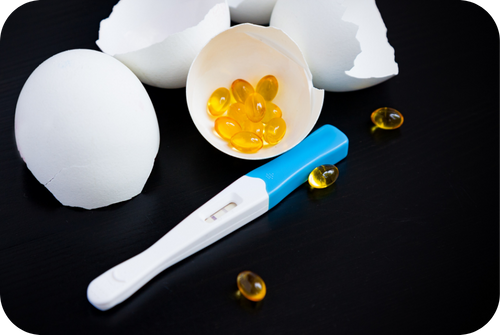At Eva IVF & Women’s Centre, we understand that struggling with infertility can be an emotional and challenging journey. If you’ve been trying to conceive without success, In Vitro Fertilization (IVF) may be the solution to help you achieve your dream of parenthood. This guide is specifically for individuals and couples considering IVF treatment. We’ll walk you through the entire IVF process, what to expect, success rates, and how to prepare for the best possible outcome.

What is IVF and Who Needs It?
In Vitro Fertilization (IVF) is an advanced fertility treatment where eggs are retrieved from the ovaries, fertilized with sperm in a laboratory, and then transferred back into the uterus to achieve pregnancy.
Who Should Consider IVF?
IVF is recommended for:
✔ Women with blocked or damaged fallopian tubes
✔ Couples with severe male infertility (low sperm count or motility)
✔ Women with endometriosis or ovarian disorders
✔ Couples with unexplained infertility after failed IUI cycles
✔ Women with low ovarian reserve (age-related infertility)
✔ Couples with genetic conditions requiring embryo screening (PGT)
If you’ve been trying to conceive for over 6-12 months without success, IVF could be the right path for you.
Step-by-Step IVF Treatment Process
🔹 Before starting IVF, our fertility specialists conduct:
✔ Blood tests & hormonal analysis (AMH, FSH, LH, Estradiol, Prolactin)
✔ Transvaginal ultrasound to check ovarian reserve and uterine health
✔ Semen analysis to assess sperm count, motility, and morphology
💡 Personalized Treatment Plan: Based on the results, we create a customized IVF plan tailored to your fertility needs.
Day 2 or 3 of Menstrual Cycle: IVF begins with fertility medications (gonadotropins) to stimulate the ovaries to produce multiple mature eggs.
📊 How is egg growth monitored?
✔ Ultrasound scans track follicle development
✔ Blood tests monitor estrogen & hormone levels
🕒 Duration: 10-12 days of hormone injections to ensure optimal egg quality.
When follicles are mature (18-22mm), a trigger shot (hCG or Lupron) is given to induce final egg maturation.
🔹 Procedure:
✔ Done under mild sedation (painless)
✔ A fine needle is used to aspirate eggs from the ovaries
✔ Eggs are collected & sent to the lab for fertilization
🕒 Duration: 15-20 minutes
⏳ Recovery: You can go home the same day.
💡 Semen Sample: On the same day as egg retrieval, the male partner provides a fresh sperm sample (or frozen sperm/donor sperm can be used).
🔬 Fertilization Methods:
✔ Conventional IVF: Egg & sperm are combined in a petri dish for natural fertilization.
✔ ICSI (Intracytoplasmic Sperm Injection): A single best sperm is injected into each egg, ideal for male infertility cases.
⏳ Within 16-18 hours, fertilized embryos are monitored for growth.
👶 Embryos are cultured in a specialized incubator for 3-5 days.
✔ Day 3 Embryo Transfer: For women with fewer embryos
✔ Day 5 Blastocyst Transfer: Preferred for higher implantation rates
💡 Embryo Grading & Selection:
Our specialists select the healthiest, high-quality embryos for transfer.
✔ Preimplantation Genetic Testing (PGT) can be done to screen embryos for genetic abnormalities before transfer.
Day 3 or Day 5 after fertilization, the best embryo is transferred into the uterus using a thin catheter.
✔ Painless procedure – No anesthesia required
✔ Takes just 10-15 minutes
✔ Bed rest for a short time, then resume normal activities
💡 Remaining embryos can be frozen for future use (Frozen Embryo Transfer – FET).
What Happens After IVF? The 2-Week Wait
14 days after embryo transfer, a blood pregnancy test (beta hCG) confirms pregnancy.
💡 What to Expect During the 2-Week Wait?
✔ Mild cramping, bloating, or breast tenderness (similar to PMS)
✔ Avoid heavy exercise, smoking, and alcohol
✔ Continue prescribed medications (progesterone, estrogen)
If the test is positive, follow-up ultrasounds confirm implantation and fetal heartbeat. If negative, we discuss the next steps (repeat cycle or frozen embryo transfer).

Success Rates of IVF – What Are Your Chances?

IVF success depends on age, egg quality, sperm health, and uterine condition.
📊 IVF Success Rates at Eva IVF:
- 50-60% for women under 35
- 35-50% for women aged 35-40
- 10-20% for women over 40 (may require donor eggs)
✔ Success increases with frozen embryo transfer (FET) and PGT screening.
Common Questions About IVF
No, egg retrieval is done under sedation, and embryo transfer is painless. Some discomfort from hormone injections is possible.
One complete IVF cycle takes 4-6 weeks from ovarian stimulation to embryo transfer.
IVF is safe, but mild risks include:
✔ Ovarian Hyperstimulation Syndrome (OHSS) – If too many eggs develop
✔ Multiple Pregnancy (Twins or Triplets) – If multiple embryos are transferred
Yes! Frozen embryos offer high success rates and avoid repeated stimulation.
How to Prepare for IVF? – Pre-Treatment Practices
Before starting IVF treatment, taking care of your body and mind is crucial for success. Follow these expert-recommended pre-treatment guidelines to improve egg quality, sperm health, and overall fertility.
1. Optimize Your Diet & Nutrition
✔ Eat protein-rich foods like eggs, fish, nuts, and legumes
✔ Increase leafy greens (spinach, kale) & antioxidants (berries, citrus fruits)
✔ Take prenatal vitamins (Folic Acid, Vitamin D, CoQ10, Omega-3)
✔ Limit processed foods, sugar, and trans fats
💡 Pro Tip: Start a fertility-friendly diet 3 months before IVF for the best results.
2. Maintain a Healthy Weight
✔ Aim for a healthy BMI (18.5-25)
✔ Moderate exercise (walking, yoga, swimming) is best
✔ Avoid intense workouts, which may disrupt ovulation
💡 Did You Know? Losing even 5-10% of excess body weight can boost IVF success rates significantly!
3. Quit Smoking, Alcohol & Caffeine
✔ Alcohol affects embryo development & implantation – Stop at least 3 months before IVF
✔ Limit caffeine to 1 cup/day (200mg max) – Too much caffeine lowers pregnancy chances
4. Reduce Stress & Improve Mental Health
✔ Try meditation, yoga, or acupuncture
✔ Sleep 7-8 hours daily for hormone balance
✔ Surround yourself with positive support – IVF is a journey, not a race
💡 Pro Tip: Studies show that stress reduction techniques improve IVF success rates by up to 20%!
5. Prepare Your Uterus for Implantation
✔ Stay hydrated and eat foods rich in iron & vitamin E (nuts, seeds, avocado)
✔ Avoid exposure to toxins, chemicals, or excessive heat (hot tubs, saunas)
💡 Did You Know? A well-prepared uterus increases embryo implantation success significantly!
6. Perform Essential Medical Tests
✔ Blood tests (AMH, FSH, LH, Prolactin, Thyroid)
✔ Ultrasound scan (to check ovarian reserve & uterus health)
✔ Semen analysis (to assess sperm quality)
✔ Hysteroscopy/Laparoscopy (if needed) to check for fibroids, cysts, or endometriosis
Post-Treatment Advice – What to Do After IVF?
After Egg Retrieval – Immediate Recovery
✔ Stay hydrated & eat light, nutritious meals
✔ Avoid strenuous activity & heavy lifting for 48 hours
✔ Take pain relievers only if prescribed
💡 Pro Tip: Drink electrolyte-rich fluids (coconut water, Gatorade) to prevent Ovarian Hyperstimulation Syndrome (OHSS).
After Embryo Transfer – The Crucial 2-Week Wait
✔ Avoid heavy workouts, lifting, or stressful activities
✔ Continue progesterone & estrogen medications as prescribed
✔ Stay positive & relaxed – stress hormones can affect implantation
✔ Avoid hot baths, saunas, or excessive heat exposure
✔ Eat implantation-supporting foods (avocados, walnuts, whole grains)
Common Symptoms After Embryo Transfer
✅ Light spotting (implantation bleeding) – not always a bad sign!
❌ No periods after 14 days? Take a pregnancy test!
When to Take a Pregnancy Test?
✔ Wait for 12-14 days after embryo transfer for the blood pregnancy test (beta hCG)
💡 What If It’s Positive?
✔ Congratulations! You will continue medications & schedule early pregnancy scans
✔ Follow doctor’s advice for prenatal care
💡 What If It’s Negative?
✔ Don’t lose hope – IVF success increases with multiple attempts
✔ Discuss frozen embryo transfer (FET) or adjustments in the next cycle
